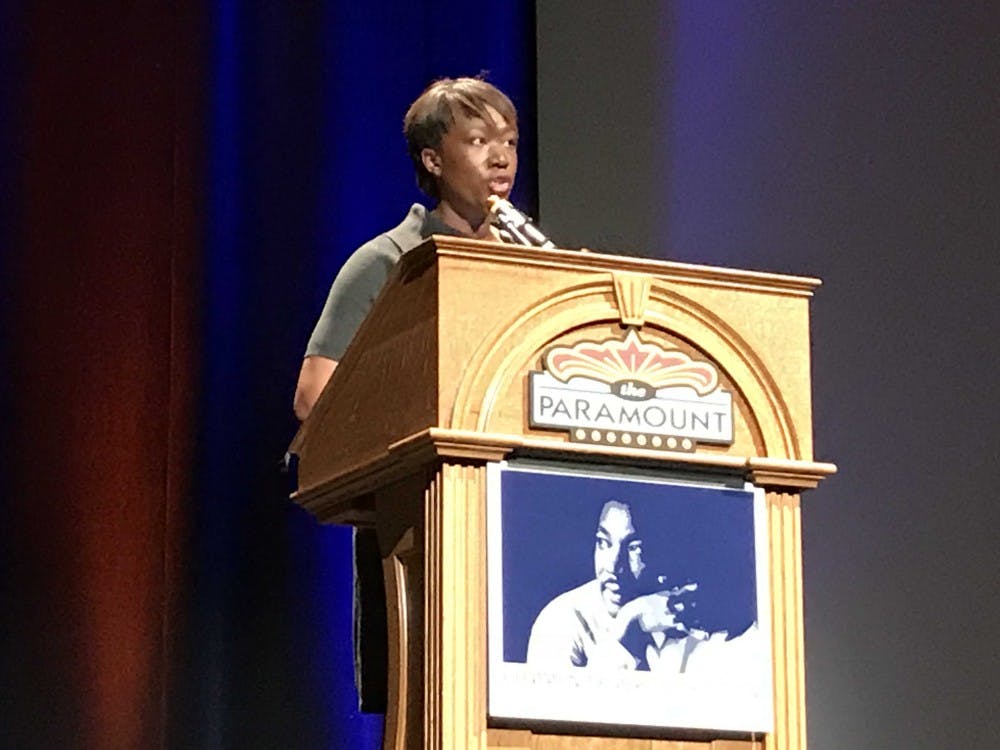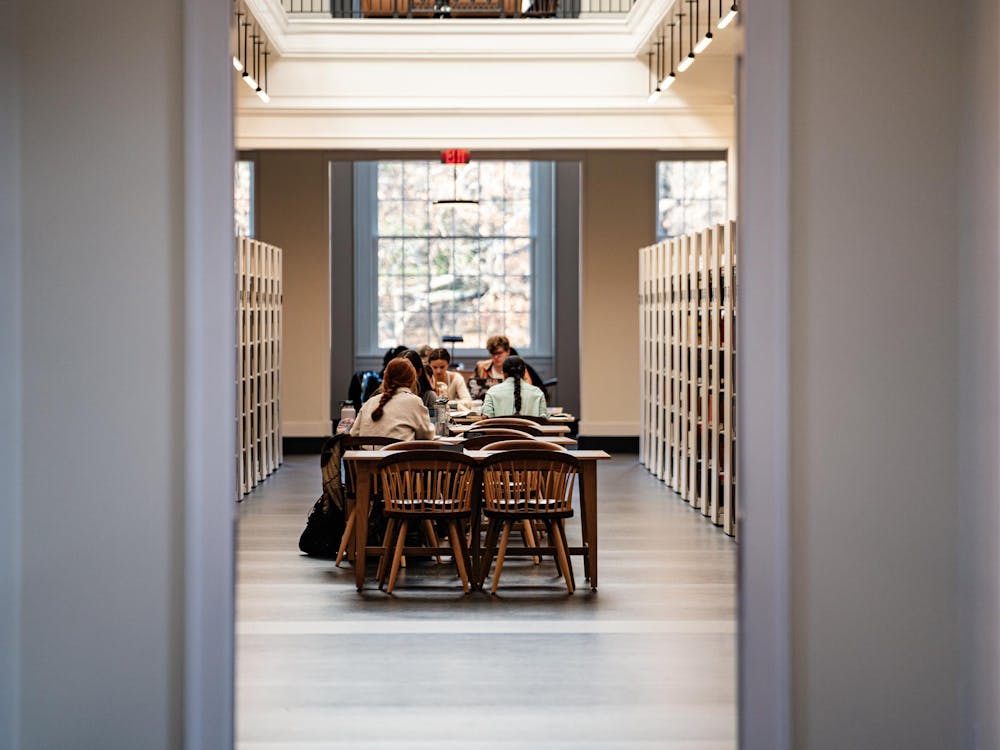Joy Reid, a national correspondent for MSNBC and host of "AM Joy" and "The Reid Report," delivered the keynote address for the Community MLK Celebration at the Paramount Theater Tuesday night. The address — titled “We are the Change We Seek” — focused on race relations in modern America.
In addition to her roles on national television, Reid has written for a variety of publications around the country. Reid also served as a press aide during former President Barack Obama’s Florida campaign in 2008.
During her remarks, Reid discussed race relations in the U.S., activism to combat racial inequality and contemporary American politics in the context of the Presidency of Donald Trump. Reid also emphasized the continued importance of Martin Luther King Jr.’s leadership during the Civil Rights Movement, and how the events of Aug. 11 and 12 in Charlottesville were emblematic of broader racial division in the U.S.
During her discussion of the history of Charlottesville, Reid said the city’s past is inevitably rooted in liberty for some but exclusion for many others.
“This is a city that is full of so much incredible history,” Reid said. “That history is very complicated, it's full of brilliance and theoretical writing about freedom and constructing a doctrine of individual liberty, and the reality that that liberty only applied to landed, white men and not to anyone else in society.”
Reid said the death of 32-year-old Heather Heyer — who was killed near the Downtown Mall in Charlottesville Aug. 12 after a car plowed into a crowd protesting “Unite the Right” demonstrators — would be a defining feature of the contemporary state of American race relations and politics in history.
“Heather Heyer’s murder right here in Charlottesville will be one of the flashpoints that defines the current era, it will define the current presidency,” Reid said. “Heather’s mom, Susan Bro, deserves to be named one of the mothers of the movement … as one of those mothers who have so touched the hearts and pricked the conscience of America on the subject of both civilian and police violence.”
Reid said white nationalist demonstrations in recent years, such as the Unite the Right rally, are a response to the rise of anti-racism activist groups, specifically Black Lives Matter.
“The violent present day response to protests is a clear sign that the Black Lives Matter movement that took off during the Obama administration produced a backlash that was every bit as ferocious as the backlash against the 44th President himself,” Reid said.
Reid emphasized that the achievements of the American Civil Rights era are still being defended against opposition in modern times, but progress is dependent upon persistent and patient resistance to racial inequality. Reid cited Martin Luther King Jr.’s efforts to influence political actors in developing Civil Rights legislation as an example of patient progress.
“Any movement forward has to be a patient movement,” Reid said. “It has to be one that’s willing to move slowly if it has to, as long as the slow walk is forward. It has to be one willing to keep pushing and negotiating with those politicians who are at least open to the influence of a moral movement.”
In relation to combating white supremacy in modern America, Reid said it is essential for white individuals to confront racism in their daily lives by acknowledging and denouncing it when they see it demonstrated by friends or family members.
“A commitment to civic justice, not just for yourself and your own tribe but for your fellow Americans, no matter who they are, is a crucial component of the change we seek,” Reid said. “Our white brothers and sisters have a responsibility to speak back to the racism of white nationalist radicalization.”
Toward the end of her address, Reid stressed the significance of unity and solidarity in making lasting change in American politics and society.
“This is a movement we all have to pursue together,” Reid said. “The change we seek has to be a shared change, an intersectional change, or there will be no change at all.”
Tuesday evening’s event was hosted by the Miller Center in conjunction with the University Office of the Vice President and Chief Officer for Diversity & Equity, the Batten School and Lifetime Learning in the Office of Engagement.
The Community MLK Celebration is a three-week series of talks, panels and discussions jointly hosted by the University and a variety of Charlottesville organizations. A variety of events meant to honor the legacy of Martin Luther King Jr. have taken place throughout the first week with the common theme of “Be the Difference” in relation to King’s fight for racial equality and justice.





